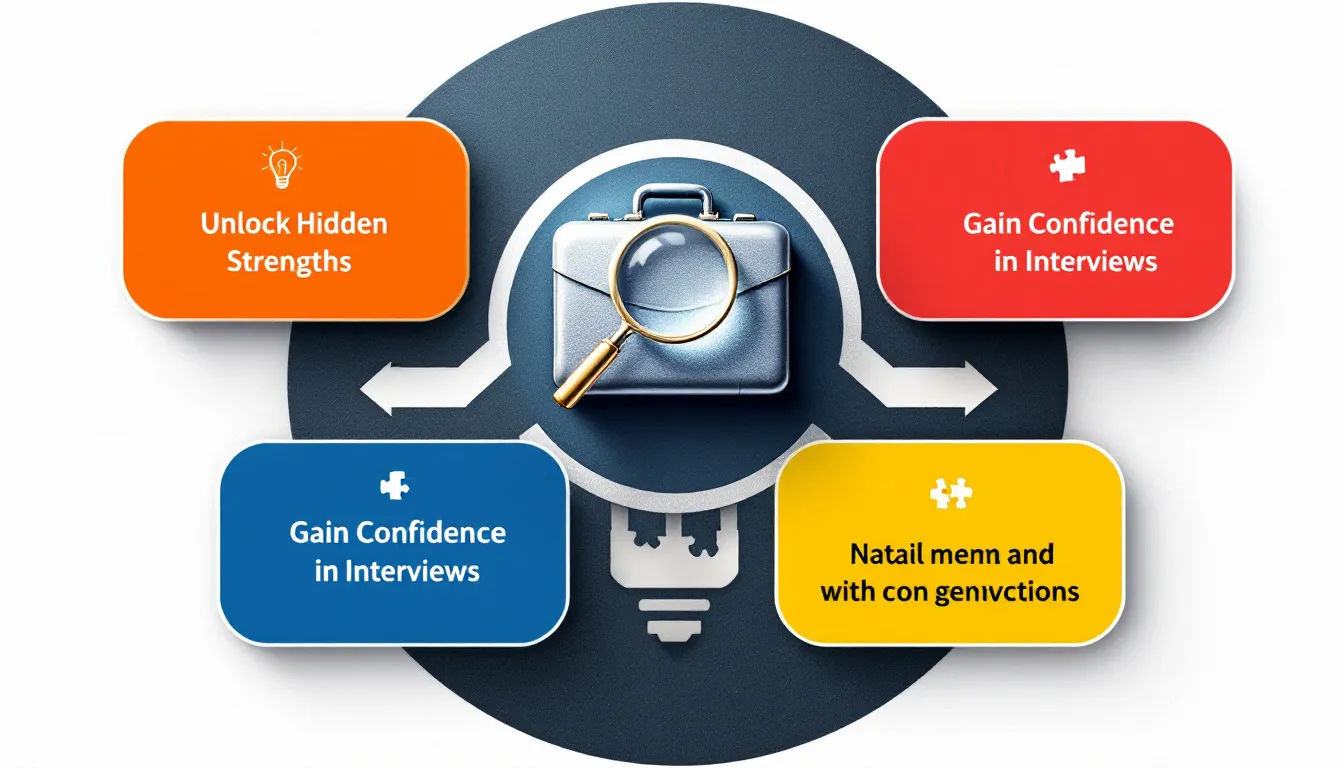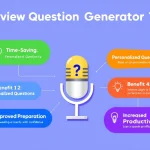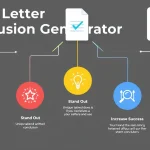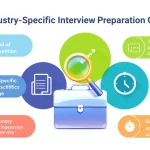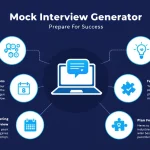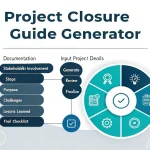Interview Guide Generator
Is this tool helpful?
How to Use the Interview Strengths and Weaknesses Guide Generator Effectively
Follow these steps to get the most out of the Interview Strengths and Weaknesses Guide Generator:
- Enter the Job Position: Input the exact role you’re targeting. For example, you could enter “Financial Analyst” or “Customer Support Specialist” to tailor the guide specifically to your industry and role.
- List Key Strengths (Optional): Add your top strengths relevant to this position. Examples include “Analytical thinking, Time management, Client relations” or “Problem-solving, Multilingual communication, Conflict resolution”.
- Identify Potential Weaknesses (Optional): Honestly list areas for improvement. You might add “Delegation, Advanced Excel skills, Public speaking” or “Technical writing, Meeting deadlines, Networking”.
- Generate Your Guide: Click the “Generate Interview Guide” button to receive tailored advice based on your inputs.
- Review and Use: Carefully read the generated guide. Use it to prepare thoughtful interview responses and save it for easy access during your preparation.
Introduction to the Interview Strengths and Weaknesses Guide Generator
The Interview Strengths and Weaknesses Guide Generator helps you prepare clear, confident answers for one of the toughest interview questions: discussing your strengths and weaknesses. It creates a personalized guide that matches your job role, giving you targeted strategies to highlight your positive qualities and address areas for improvement.
This tool transforms generic advice into actionable insights tailored to your industry and position. You’ll understand how to emphasize your skills in a way that resonates with hiring managers and how to discuss challenges honestly while showing your growth mindset.
Using this guide boosts your self-awareness, saving you time and helping you walk into your interview with confidence and clarity.
Purpose and Benefits
- Tailored content: Get specific advice aligned with your job title and industry.
- Strategic framing: Learn how to showcase strengths that employers value.
- Balanced weakness discussions: Address weaknesses constructively to demonstrate your growth.
- Practical examples: Use concrete illustrations to support your claims.
- Boosted confidence: Enter interviews prepared with thoughtful, authentic answers.
- Time efficiency: Quickly generate targeted advice without hours of research.
Practical Applications of the Interview Guide Generator
This tool adapts to a variety of job seekers and interview scenarios, helping you prepare based on your career stage, industry, and specific role:
1. Entry-Level Applicants
New graduates can craft responses that highlight transferable skills. For example:
Strength Example: “I excel at learning new software quickly. During my internship, I mastered Salesforce in two weeks, improving data entry efficiency by 20%.”
Weakness Example: “I am working on improving my public speaking skills by joining a local Toastmasters club to build confidence.”
2. Mid-Career Professionals Changing Fields
Transitioning employees can align past experience with new roles:
Strength Example: “My background in education has strengthened my ability to communicate complex concepts clearly, which is valuable in client training.”
Weakness Example: “I am learning industry-specific software by taking online courses and seeking mentorship to bridge knowledge gaps.”
3. Senior-Level Executives Preparing for Leadership Roles
Experienced leaders can prepare to discuss nuanced strengths and challenges:
Strength Example: “I spearheaded a cross-departmental initiative that increased team productivity by 30% in under a year.”
Weakness Example: “I tend to focus on details, and I’ve improved by delegating more and trusting my management team to handle execution.”
4. Candidates for Remote Positions
Remote workers can emphasize skills important for virtual collaboration:
Strength Example: “I manage my time effectively in a remote environment, consistently meeting deadlines and maintaining clear communication.”
Weakness Example: “To improve virtual engagement, I schedule regular check-ins and use video calls to foster team connections.”
Addressing Key Interview Challenges with This Guide
The guide solves common problems candidates face during interviews, such as:
- Reducing anxiety: Offering structured ways to discuss strengths and weaknesses calmly.
- Industry relevance: Tailoring answers based on the expectations of your specific job sector.
- Balancing confidence and humility: Helping you sound assured without arrogance.
- Providing concrete examples: Suggesting how to illustrate your points with real experiences.
- Aligning with job requirements: Ensuring your responses speak directly to the role’s key demands.
Frequently Asked Questions
1. How many strengths and weaknesses should I prepare?
Prepare 3 to 5 strengths and 2 to 3 weaknesses. This range provides enough material to discuss confidently without overloading yourself.
2. Should I use the same strengths and weaknesses for every job?
No. Tailor your responses for each role. This guide helps you focus on what’s most relevant for each position.
3. How honest should I be about my weaknesses?
Be truthful but strategic. Choose weaknesses that don’t undermine your ability to perform the job, and emphasize your efforts to improve.
4. Can I reuse examples across interviews?
Yes, but adapt them to fit the job’s context and company culture for maximum impact.
5. How do I avoid sounding boastful when discussing strengths?
Speak factually about your accomplishments and use numbers or outcomes where possible to back up your claims.
6. What if I’m unsure about my strengths or weaknesses?
Focus on areas you feel confident discussing. It’s okay to say that you need to reflect more on certain traits and offer to follow up later.
7. How recent should my examples be?
Recent examples are ideal, but choose the most impactful stories. Be ready to explain how those skills or lessons continue to apply today.
Important Disclaimer
The calculations, results, and content provided by our tools are not guaranteed to be accurate, complete, or reliable. Users are responsible for verifying and interpreting the results. Our content and tools may contain errors, biases, or inconsistencies. Do not enter personal data, sensitive information, or personally identifiable information in our web forms or tools. Such data entry violates our terms of service and may result in unauthorized disclosure to third parties. We reserve the right to save inputs and outputs from our tools for the purposes of error debugging, bias identification, and performance improvement. External companies providing AI models used in our tools may also save and process data in accordance with their own policies. By using our tools, you consent to this data collection and processing. We reserve the right to limit the usage of our tools based on current usability factors.
